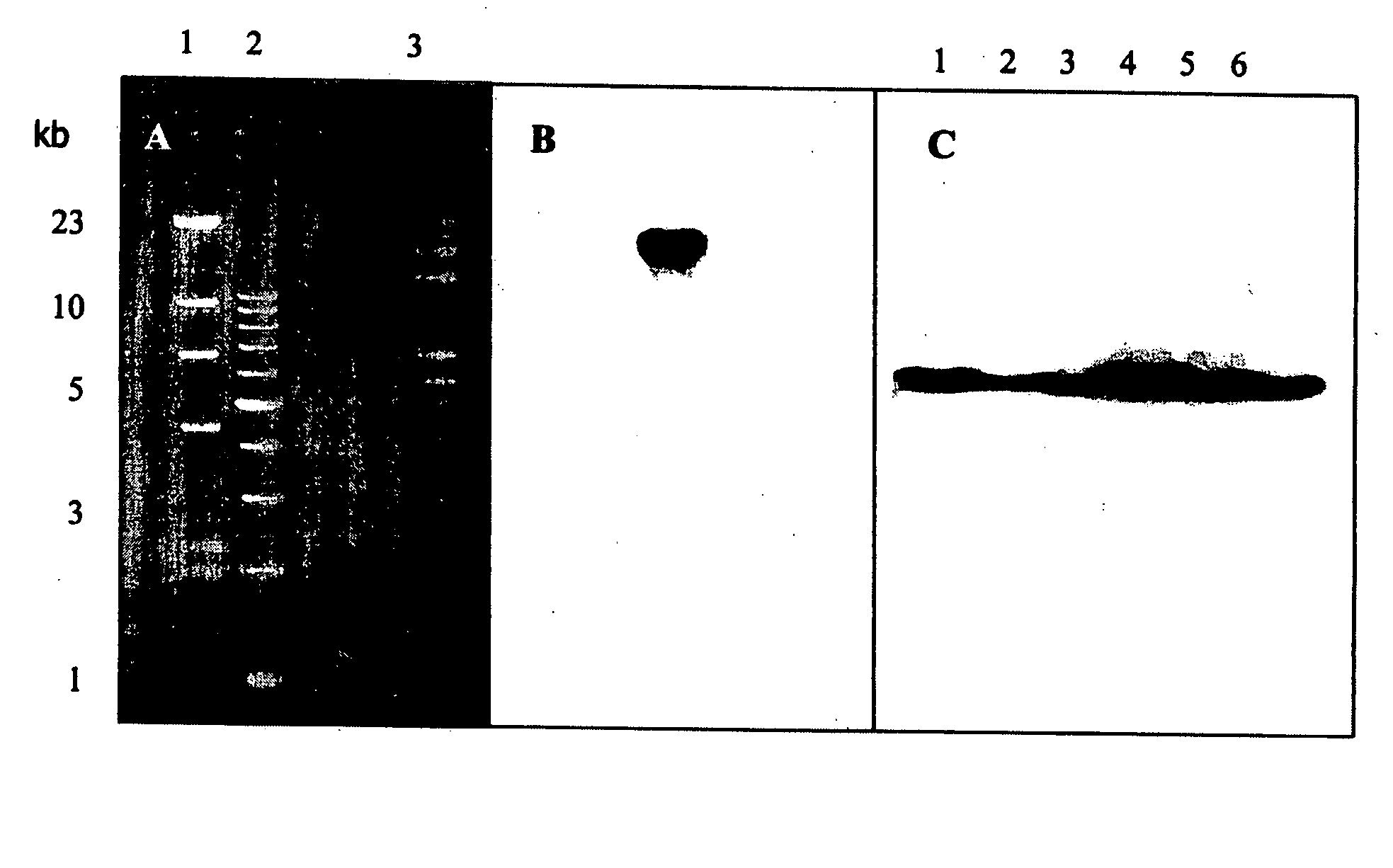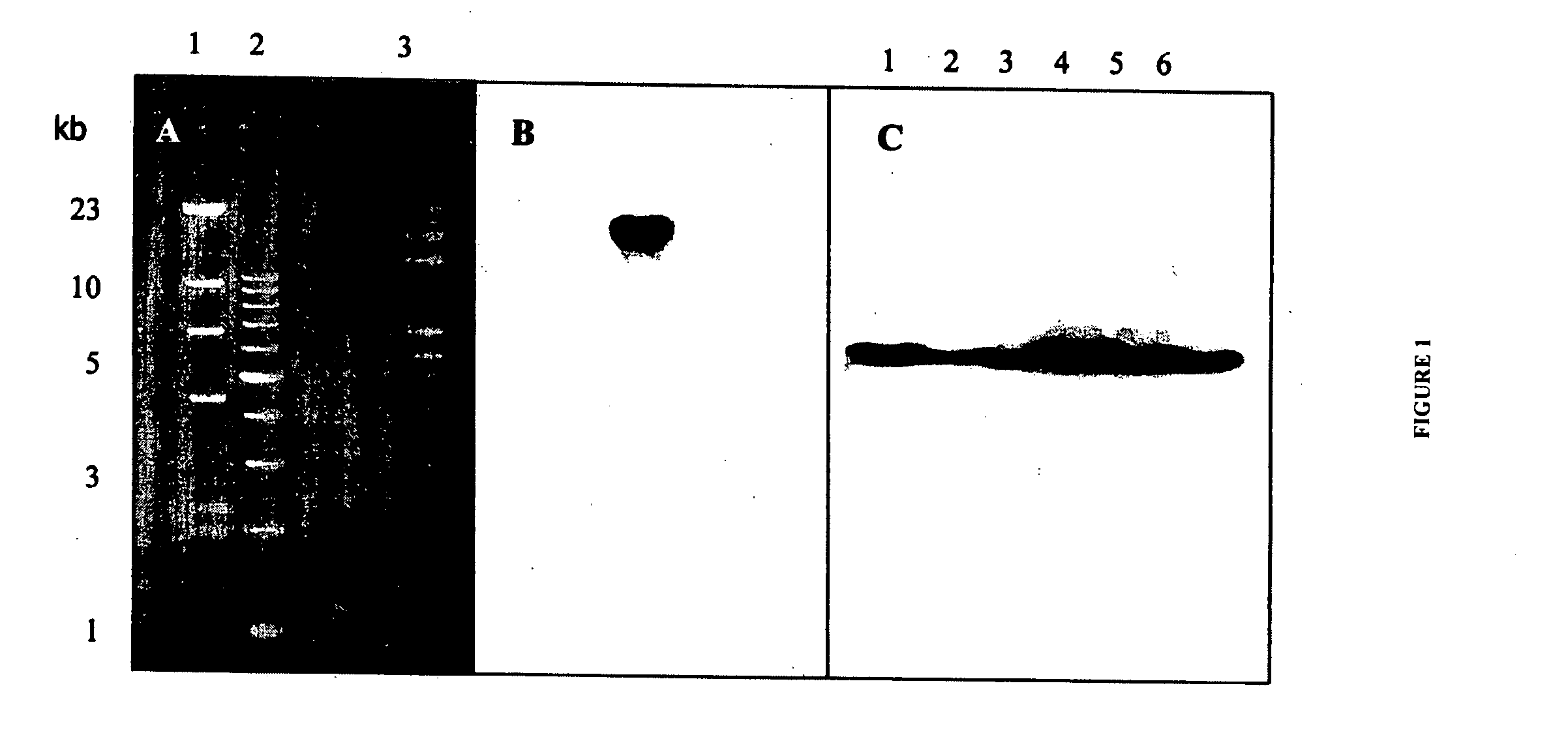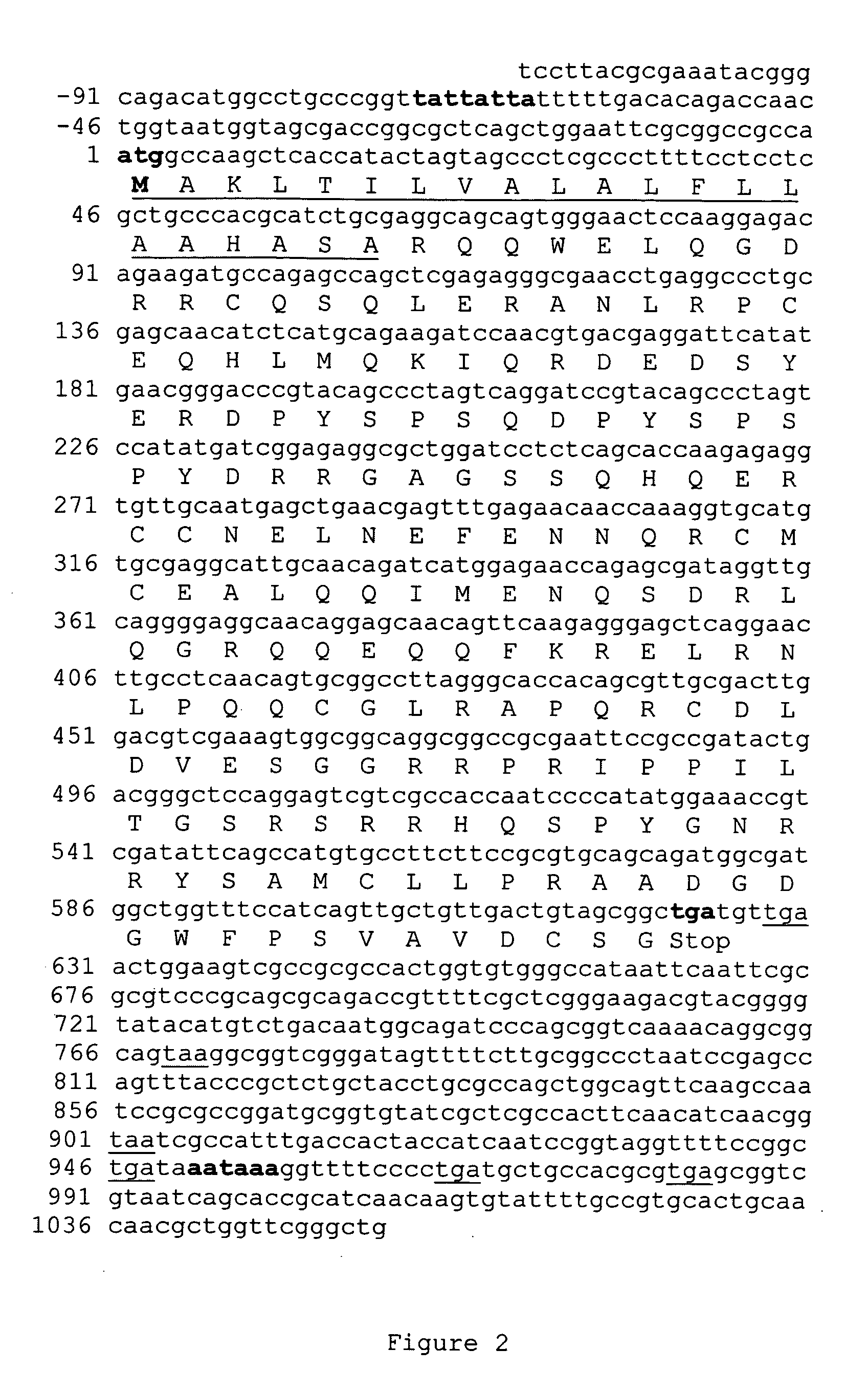Down-regulation and silencing of allergen genes in transgenic peanut plants
- Summary
- Abstract
- Description
- Claims
- Application Information
AI Technical Summary
Benefits of technology
Problems solved by technology
Method used
Image
Examples
example 1
Isolation and Characterization of the Genomic Clones Encoding the Peanut Allergen Genes
[0169] a) Library Screening
[0170] To identify the genomic clone of the gene coding for the peanut allergen Ara hII, a peanut genomic library constructed in a Lambda Fix II vector (Stratagene Inc, La Jolla, Calif.) was screened with an 80 base pair oligonucleotide probe. The probe sequence (5′ ctagtagccctcgccttttcctcctcgctgcccacgcatctgcgaggcagcagtgggaactccaaggagacagaaga tg-3′) (SEQ ID NO: 7) corresponds to nucleotide eleven to ninety-one of a published Ara h2 cDNA sequence (GeneBank accession L77197).
[0171] Twenty picomoles of the probe was end-labeled with radioactive adenosine 5′-triphosphate, tetra (triethylammonium), salt [gamma 32P] (32P) as described by Ausubel et al. (Ausubel F, Brent R, Kingston R E, Moore D D, Seidman J G, Smith J A, Struhl K. Short Protocols in Molecular Biology. 3rd ed.: John Wiley & Sons, Inc.; 1995) Fresh Echerichia Coli (E. Coli) VCS 257 (300 μL of 1×1010 cells / mL)...
example 2
Construction strategy of peanut allergen gene plasmids
[0204] Peanut allergen gene plasmids were constructed using expression cassettes containing antisense, and / or sense orientation of allergen genes linked to 35S / Ara h2 promoter and nos terminator, as shown in FIG. 8. Five types of constructs were used for the transformation of peanut tissue. The plasmid constructs pBI426, modified pBI426, and pCB13, were used in biolistic transformation. pBI434modified pBI434 were used in Agrobacterium-mediated transformation The Ara h2 promoter is shown in FIG. 9.
[0205] PCB13 is used in co-bombardments with modified pBI426 which contains peanut allergen fragments (Ara h transgenes), to select transgenic plants. pCB13 contains the 35S promoter, hygromycin gene, and the nos terminator. This cassette is cloned into pUC 19.
[0206] The plasmid pBI426 (Dalta et al., 1991 Gene 101: 239-246) contains a fusion gene (GUS fused to nptII) cloned between XbaI and SacI, and driven by the 35S promoter. Its al...
example 3
Methodology Used in Peanut Tissue Culture, Transformation and Regeneration
[0211] Peanut Varieties
[0212] The most widely cultivated peanut cultivars in the USA, ‘Florunner’, ‘New Mexico Valencia’, ‘Georgia Green’, and ‘Georgia Red’ can be used in the present method, although a person skilled in the art will realize that the method is applicable to other peanut varieties.
[0213] Genetic Constructs
[0214] Efficient strategies to down-regulate genes in transgenic plants utilize antisense RNA, co-suppression, or double-stranded RNA. All three methods are being used to down-regulate peanut allergens. Transformation vectors used are pUC 18 for biolistic transformation, and modified versions of pBI434 (Dalta et al, 1991), a binary vector for transformation using Agrobacterium tumefaciens. Transformation vectors carry the transgenes, flanked by a (the Arah2 promoter, shown in FIG. 9, or the 35S promoter) and the nopaline synthase terminator. Transgenes are portions of the open reading fram...
PUM
| Property | Measurement | Unit |
|---|---|---|
| Electrical conductance | aaaaa | aaaaa |
| Length | aaaaa | aaaaa |
Abstract
Description
Claims
Application Information
 Login to View More
Login to View More - R&D
- Intellectual Property
- Life Sciences
- Materials
- Tech Scout
- Unparalleled Data Quality
- Higher Quality Content
- 60% Fewer Hallucinations
Browse by: Latest US Patents, China's latest patents, Technical Efficacy Thesaurus, Application Domain, Technology Topic, Popular Technical Reports.
© 2025 PatSnap. All rights reserved.Legal|Privacy policy|Modern Slavery Act Transparency Statement|Sitemap|About US| Contact US: help@patsnap.com



